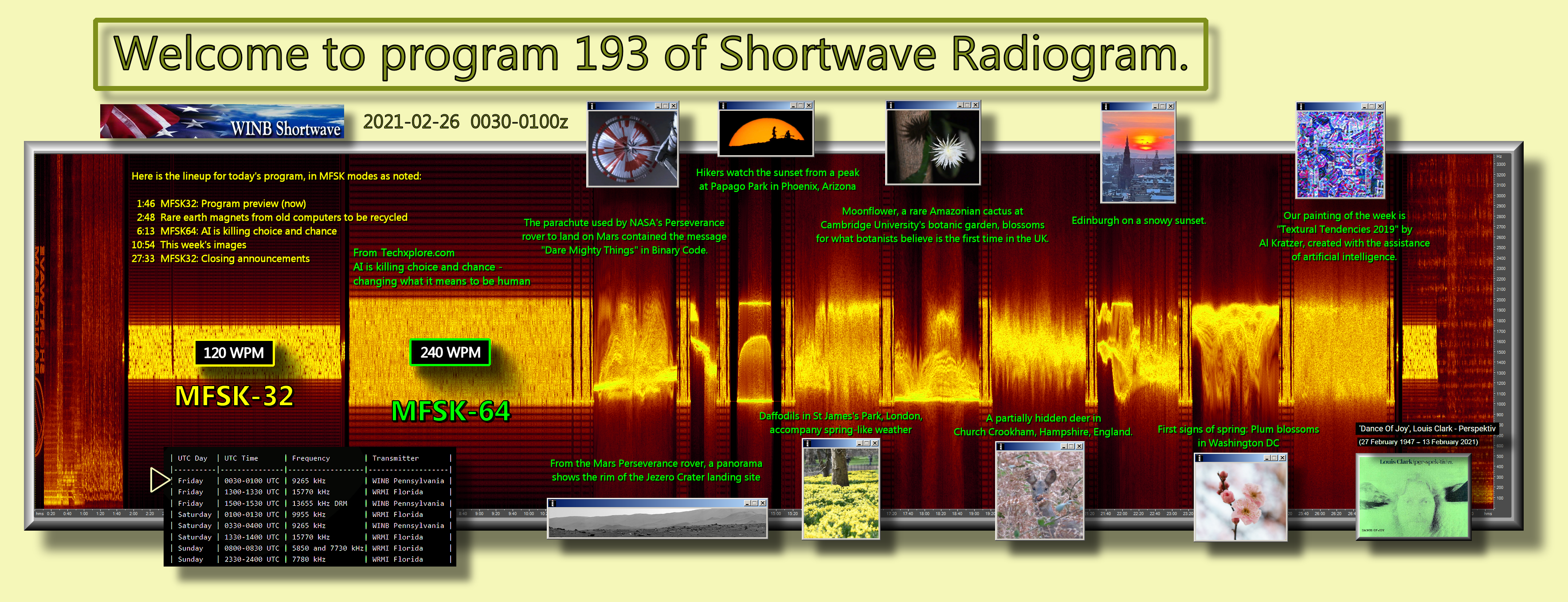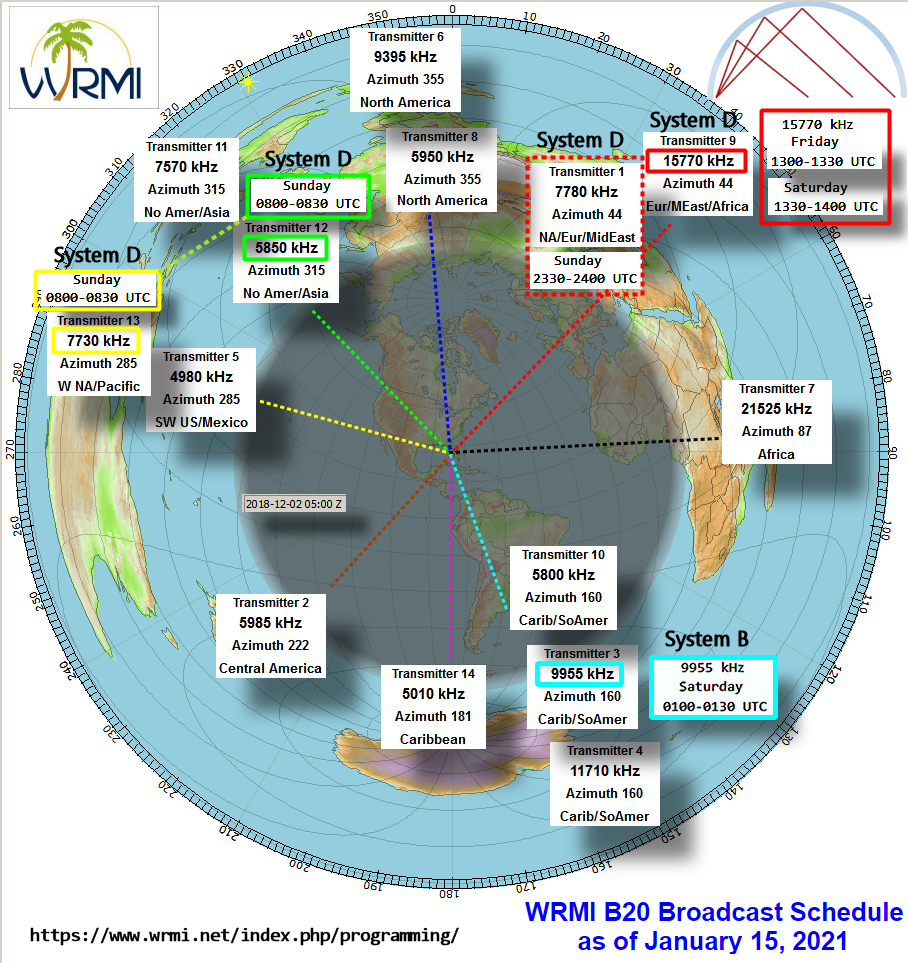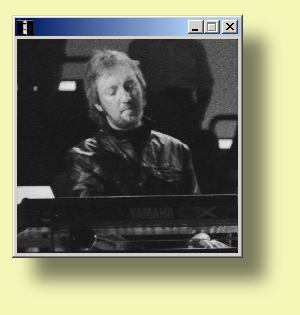http://www.rhci-online.net/radiogram/radiogram.htm

http://www.rhci-online.net/radiogram/radiogram.htm

RSID: <<2021-02-26T00:31Z MFSK-32 @ 9265000+1500>>
Welcome to program 193 of Shortwave Radiogram.
I'm Kim Andrew Elliott in Arlington, Virginia USA.
Here is the lineup for today's program, in MFSK modes as noted:
1:46 MFSK32: Program preview (now)
2:48 Rare earth magnets from old computers to be recycled
6:13 MFSK64: AI is killing choice and chance
10:54 This week's images
27:33 MFSK32: Closing announcements
Please send reception reports to
radiogram@verizon.net
And visit http://swradiogram.net
Twitter:
@SWRadiogram
From New Atlas:
Rare earth magnets from old computers to find use in electric
Bentleys
Nick Lavars
February 21, 2021
Rare earth magnets form an important part of many of today's
electronic devices, ranging from wind turbine generators to MRI
scanners. Despite their prevalence, only a tiny fraction of these
magnets are recycled once they reach the end of their lives, but
a new project involving Bentley Motors is intended to steer this
trend back in the right direction, by repurposing them for use in
luxury vehicles.
The new UK-funded venture goes by the name of the RaRE
(Rare-earth Recycling for E-machines) and involves a number of
industry partners in addition to Bentley, with a technology
patented by researchers at the University of Birmingham and now
licensed to spin-off company HyProMag serving as the bedrock.
This is called Hydrogen Processing of Magnet Scrap (HPMS), and
involves breaking down rare earth metals in discarded electronic
devices as a way of separating them from the other bits and
pieces.
As part of a new three-year agreement, the researchers will now
adapt this technology to recycle rare earth magnets from old
computer hard drives, which will be used in ancillary motors for
Bentley's electric and hybrid vehicles. The luxury automaker has
taken tentative steps toward electrification in recent years,
introducing a Bentayga Hybrid in 2018 following a string of
electric sports car concepts.
A key focus of the project will be coming up with a way of
scaling up this HPMS recycling process to produce more
substantial amounts of neodymium magnets (NdFeB), the most common
form of rare earth metal.
"RaRE is an exciting project and a fantastic opportunity," says
Nick Mann, Operations General Manager at HyProMag. "HyProMag's
recycling technologies allow us to produce NdFeB magnets with a
much lower embedded carbon cost than using virgin supply and with
independence from Chinese supply and we are working closely with
our major shareholder Mkango Resources to further grow the
business."
Source: University of Birmingham
https://newatlas.com/materials/rare-earth-magnets-old-computers-electric-bentleys/
Shortwave Radiogram changes to MFSK64 ...
RSID: <<2021-02-26T00:36Z
MFSK-64 @
9265000+1500>>
This is Shortwave Radiogram in MFSK64
Please send your reception report to
radiogram@verizon.net
From Techxplore.com
AI is killing choice and chance—changing what it means to be
human
by Nir Eisikovits and Dan Feldman, The Conversation
February 24, 2021
The history of humans' use of technology has always been a
history of coevolution. Philosophers from Rousseau to Heidegger
to Carl Schmitt have argued that technology is never a neutral
tool for achieving human ends. Technological innovations—from the
most rudimentary to the most sophisticated – reshape people as
they use these innovations to control their environment.
Artificial intelligence is a new and powerful tool, and it, too,
is altering humanity.
Writing and, later, the printing press made it possible to
carefully record history and easily disseminate knowledge, but it
eliminated centuries-old traditions of oral storytelling.
Ubiquitous digital and phone cameras have changed how people
experience and perceive events. Widely available GPS systems have
meant that drivers rarely get lost, but a reliance on them has
also atrophied their native capacity to orient themselves.
AI is no different. While the term AI conjures up anxieties about
killer robots, unemployment or a massive surveillance state,
there are other, deeper implications. As AI increasingly shapes
the human experience, how does this change what it means to be
human? Central to the problem is a person's capacity to make
choices, particularly judgments that have moral implications.
Taking over our lives?
AI is being used for wide and rapidly expanding purposes. It is
being used to predict which television shows or movies
individuals will want to watch based on past preferences and to
make decisions about who can borrow money based on past
performance and other proxies for the likelihood of repayment.
It's being used to detect fraudulent commercial transactions and
identify malignant tumors. It's being used for hiring and firing
decisions in large chain stores and public school districts. And
it's being used in law enforcement—from assessing the chances of
recidivism, to police force allocation, to the facial
identification of criminal suspects.
Many of these applications present relatively obvious risks. If
the algorithms used for loan approval, facial recognition and
hiring are trained on biased data, thereby building biased
models, they tend to perpetuate existing prejudices and
inequalities. But researchers believe that cleaned-up data and
more rigorous modeling would reduce and potentially eliminate
algorithmic bias. It's even possible that AI could make
predictions that are fairer and less biased than those made by
humans.
Where algorithmic bias is a technical issue that can be solved,
at least in theory, the question of how AI alters the abilities
that define human beings is more fundamental. We have been
studying this question for the last few years as part of the
Artificial Intelligence and Experience project at UMass Boston's
Applied Ethics Center.
Losing the ability to choose
Aristotle argued that the capacity for making practical judgments
depends on regularly making them – on habit and practice. We see
the emergence of machines as substitute judges in a variety of
workaday contexts as a potential threat to people learning how to
effectively exercise judgment themselves.
In the workplace, managers routinely make decisions about whom to
hire or fire, which loan to approve and where to send police
officers, to name a few. These are areas where algorithmic
prescription is replacing human judgment, and so people who might
have had the chance to develop practical judgment in these areas
no longer will.
Recommendation engines, which are increasingly prevalent
intermediaries in people's consumption of culture, may serve to
constrain choice and minimize serendipity. By presenting
consumers with algorithmically curated choices of what to watch,
read, stream and visit next, companies are replacing human taste
with machine taste. In one sense, this is helpful. After all, the
machines can survey a wider range of choices than any individual
is likely to have the time or energy to do on her own.
At the same time, though, this curation is optimizing for what
people are likely to prefer based on what they've preferred in
the past. We think there is some risk that people's options will
be constrained by their pasts in a new and unanticipated way—a
generalization of the "echo chamber" people are already seeing in
social media.
The advent of potent predictive technologies seems likely to
affect basic political institutions, too. The idea of human
rights, for example, is grounded in the insight that human beings
are majestic, unpredictable, self-governing agents whose freedoms
must be guaranteed by the state. If humanity—or at least its
decision-making—becomes more predictable, will political
institutions continue to protect human rights in the same way?
Utterly predictable
As machine learning algorithms, a common form of "narrow" or
"weak" AI, improve and as they train on more extensive data sets,
larger parts of everyday life are likely to become utterly
predictable. The predictions are going to get better and better,
and they will ultimately make common experiences more efficient
and more pleasant.
Algorithms could soon—if they don't already—have a better idea
about which show you'd like to watch next and which job candidate
you should hire than you do. One day, humans may even find a way
machines can make these decisions without some of the biases that
humans typically display.
But to the extent that unpredictability is part of how people
understand themselves and part of what people like about
themselves, humanity is in the process of losing something
significant. As they become more and more predictable, the
creatures inhabiting the increasingly AI-mediated world will
become less and less like us.
https://techxplore.com/news/2021-02-ai-choice-chancechanging-human.html
This is Shortwave Radiogram in MFSK64
Please send your reception report to
radiogram@verizon.net
This week's images ...
The parachute used by NASA's Perseverance rover to land on Mars
contained the message "Dare Mighty Things" in Binary Code.
https://bit.ly/3kmj2PM ...
Sending Pic:200x168C;

From the Mars Perseverance rover, a panorama shows the rim of the
Jezero Crater landing site.
https://bit.ly/3aSwVSX ...
Sending Pic:490x65;

Hikers watch the sunset from a peak at Papago Park in Phoenix,
Arizona, February 20. https://bit.ly/3aSEGbp ...
Sending Pic:209x100C;

Daffodils in St James's Park, London, accompany spring-like
weather.
https://bit.ly/3pUjm9Q ...
Sending Pic:168x202C;

Moonflower, a rare Amazonian cactus at Cambridge University's
botanic garden, blossoms for what botanists believe is the first
time in the UK.
https://bit.ly/37NEeJv ...
Sending Pic:207x165C;
A partially hidden deer in Church Crookham, Hampshire, England.
https://bbc.in/2NVrZUe ...
Sending Pic:193x196C;

Edinburgh on a snowy sunset.
https://bbc.in/37PrSki ...
Sending Pic:162x203C;
First signs of spring: Plum blossoms in Washington DC, February
24. https://bit.ly/37Mto6t ...
Sending Pic:203x173C;

Our painting of the week is "Textural Tendencies 2019" by Al
Kratzer, created with the assistance of artificial intelligence.
https://bit.ly/3dTHl6q ...
Sending Pic:194x193C;
Shortwave Radiogram returns to MFSK32 ...
RSID: <<2021-02-26T00:57Z
MFSK-32 @
9265000+1500>>
This is Shortwave Radiogram in MFSK32
...
Shortwave Radiogram is transmitted
by:
WRMI, Radio Miami International, wrmi.net
and
WINB Shortwave, winb.com
Please send reception reports to
radiogram@verizon.net
And visit http://swradiogram.net
Twitter:
@SWRadiogram or twitter.com/swradiogram
I'm Kim Elliott. Please join us for the next Shortwave
Radiogram.
|
SWRG193 closing song: Closing Song SWRG193: 'Dance Of Joy', Louis Clark - Perspektiv
https://youtu.be/dkjb-kVinss
|

http://www.rhci-online.net/radiogram/radiogram.htm
|
QTH: |
D-06193 Petersberg (Germany/Germania) |
|
|
Ant.: |
Dipol for 40m-Band & Boomerang Antenna 11m-Band |
|
|
RX for RF: |
FRG-100B + IF-mixer & ICOM IC-R75 + IF-mixer |
|
|
Software IF: |
con STUDIO1 - Software italiano per SDR [S-AM-USB/LSB] + beta 11 Version 2.80 (August 21, 2018) - for scheduled IF-recording |
|
|
Software AF: |
Fldigi-4.0.18 + flmsg-4.0.7 images-fldigifiles on homedrive.lnk |
|
|
OS: |
German XP-SP3 with support for asian languages |
German W7 32bit + 64bit |
|
PC: |
MEDION Titanium 8008 (since 2003) [ P4 - 2,6 GHz] |
MSI-CR70-2MP345W7 (since2014) [i5 -P3560 ( 2 x 2,6GHz) ] |
http://wiki.radioreference.com/index.php/Decoding_the_SW_Radiogram_Broadcasts
https://www.qsl.net/ve7vv/Files/Digital%20Modes.pdf
RSID: <<2021-02-25T02:51Z MFSK-64 @ 5850000+1500>>

This Is A Music Show #104
25 February 2021
0200-0300UTC Thursday on 5850 kHz
via WRMI, Okeechobee USA
***ALSO***
TIAnExpressMS w/ Radio Northern Europe International
via Channel 292 in Germany, on 6070 kHz.
Broadcast various dates/times. Check the schedule here:
https://www.channel292.de/schedule-6070-khz/
https://rnei.org/
----------------------------------------
PLAYLIST
*** NEW TIAMS WEBSITE ***
https://thisisamusicshow.com
-----
Please send reception reports/comments:
thisisamusicshow@gmail.com
Follow TIAMS on Twitter:
www.twitter.com/ThisIsAMusicSho/
------
Thanks for listening!
--YOUR HOST--
EOM
RSID: <<2021-02-25T02:52Z
MFSK-64 @
5850000+1500>>
Sending Pic:300x300Cp4;

RSID: <<2021-02-28T01:30Z MFSK-64 @ 5960000+1500>>
Louis "Lou" Clark, who worked with Electric Light Orchestra and
recorded "Hooked on Classics," was born February 27, 1947.
He died February 13, 2021.
Sending Pic:221x214;

bit.ly/3kj5q8g
bit.ly/3qOs76A
Please report your decode to
themightykbc@gmail.com